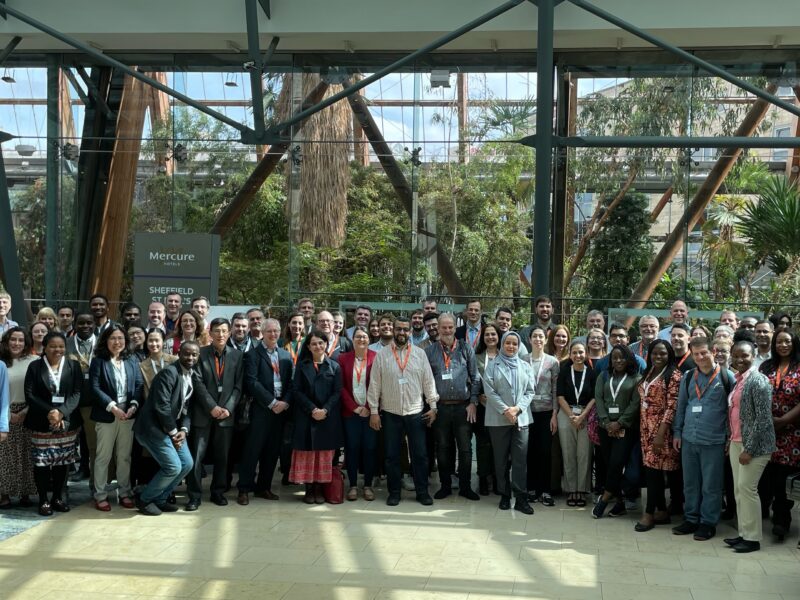POC02: Arabinoxylan co-production from sugarcane bagasse in integrated biorefineries (ACSIB)
- Project lead
- Grant Campbell
- Institute
- University of Huddersfield
Lead applicant: Grant Campbell, University of Huddersfield
Co-Applicants: Julian Cooper, AB Sugar; James Flint, University of Lincoln; Jon McKechnie, University of Nottingham; Gavin Thomas, University of York; Nicholas Westwood, University of St
Andrews
Public Summary
Arabinoxylans are potentially a healthy soluble fibre food ingredient with prebiotic activity. Meanwhile, sugarcane bagasse is a low value by-product of sugar and bioethanol production, from which arabinoxylans could be extracted to produce a high value revenue stream and a new class of functional food ingredients. One of the processes for producing arabinoxylans uses ethanol for precipitation; co-production of AX with bioethanol production therefore gives scope for integrated processing and economic production of AX. The current proposal will establish the scientific and process engineering bases for commercially viable production of arabinoxylan in the context of an integrated biorefinery, for use as a novel class of food ingredient. The feasibility of extracting AX from sugarcane bagasse will be demonstrated, and the extracted material characterised for molecular weight and structure. Enzymes that target the ferulic acid linkages between AX and lignin will be applied to enhance AX extraction from both sugarcane bagasse and wheat bran. A larger scale trial will produce sufficient material to allow the functionality of the extracted AX as a bread ingredient to be demonstrated. The residual lignin, which has been partially deconstructed by the AX extraction process, will be examined
for its suitability as a feedstock for conversion into a phenolic monomer using an existing reaction sequence. A techno-economic analysis will consider the broad economic viability of the proposed integrated process and its environmental implications.
Public Project Outcome
Arabinoxylans (AX) are a promising co-product of integrated ethanol biorefineries in which ethanol is used to precipitate the AX, giving a commercially viable context in which a new class of functional food ingredients might be produced. This proof-of-concept project demonstrated that AX could be extracted from sugarcane bagasse as well as from wheat bran, and that extraction yields and extract properties could be enhanced and refined through the application of feruloyl esterase and xylanase enzymes. Bagasse contained higher quantities of arabinoxylans (AX) with a much lower A:X ratio than wheat bran and gave higher yields on extraction. Scale-up issues were addressed and extracts produced at a scale and purity suitable for further evaluation as food ingredients. The lignin in the residue following AX extraction was evaluated for its suitability for further processing into valuable monomers. Wheat bran contained little usable lignin, while the lignin in bagasse was suitable for controlled depolymerisation into valuable monomers. Opportunities for enhanced economics through integration of the ethanolic streams were identified and optimised using pinch analysis. The project strengthened the evidence base for seeking to establish commercial processes for AX production and
markets for its use, and enhanced the scientific and engineering bases for continued research towards that end.








